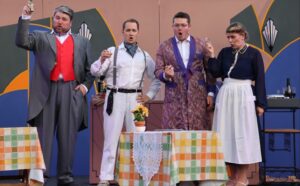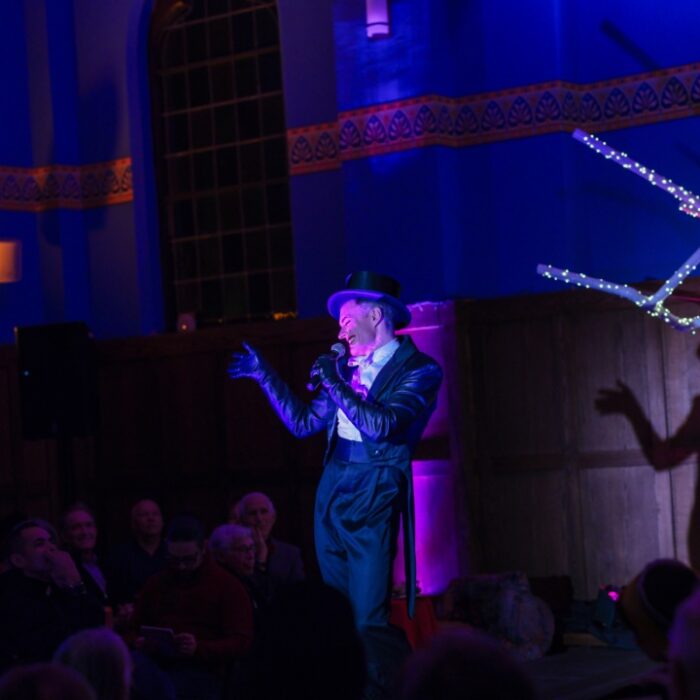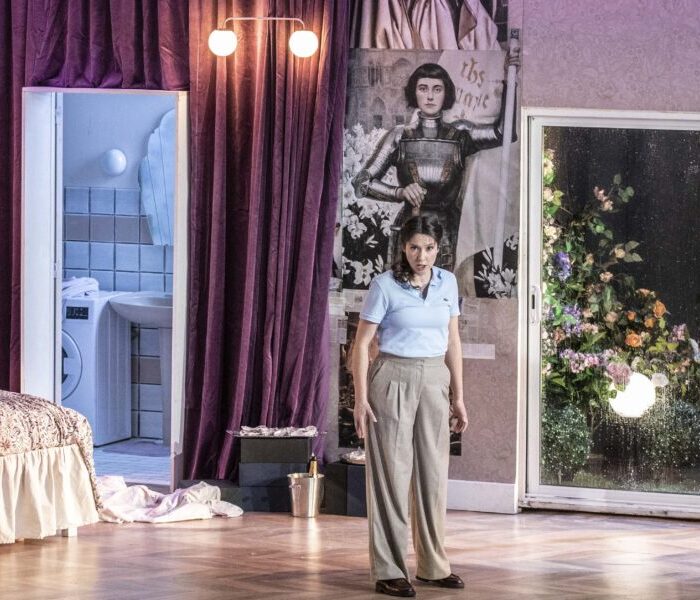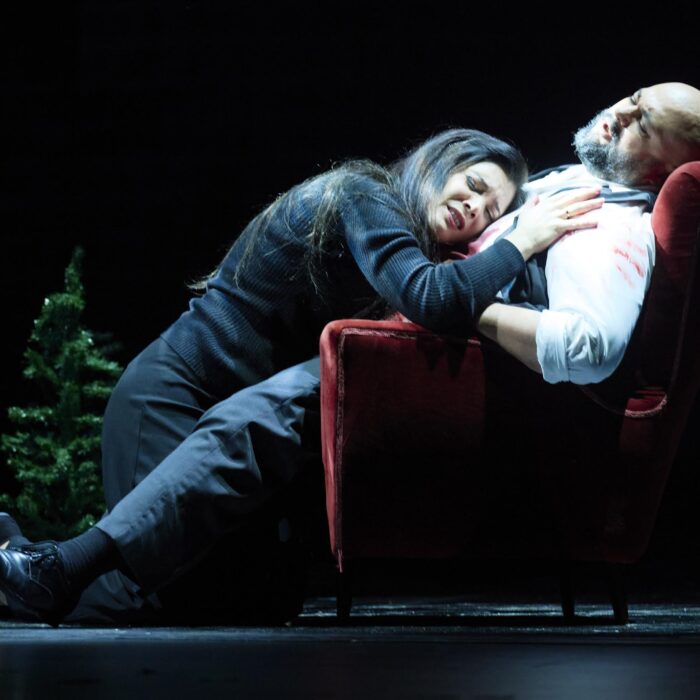
Bampton Classical Opera at Smith Square 2025 Review: La locandiera
By Mengguang Huang(Photo: © Bampton Classical Opera)
Two hundred years after Antonio Salieri’s death, Bampton Classical Opera has once again shown why his work deserves a place on today’s stages. Their production of “La locandiera” (The Landlady), Salieri’s sparkling comedy based on Goldoni’s celebrated play, offered London audiences a rare chance to experience one of the liveliest works of eighteenth-century opera buffa.
The London staging highlighted Bampton’s knack for combining musical curiosity with theatrical flair. Conductor Andrew Griffiths led the orchestra with precision and lightness, keeping the music buoyant and engaging. Though not a period-instrument ensemble, the playing was transparent and well-phrased, and the continuo—if occasionally a little thin—added wit and warmth that suited Salieri’s lively score.
Jeremy Gray’s direction was energetic and precise, drawing out both the physical humour and social satire without descending into caricature. The minimalist set, with wings framing a gradually raised central platform for the orchestra, was reminiscent of the Steffani staging at the Potsdam Musikfestspiele this year. Everyday details—chocolate, scrambled eggs, and the constant bustle of the inn—breathed life into the production, while the overall tone remained light-hearted, perfectly capturing Mirandolina’s clever tussle with the pompous Baron Ripafratta.
Siân Dicker shone as Mirandolina, combining warmth, vocal flexibility, and sharp comic intelligence. She controlled the role with charm and authority, making it clear that Mirandolina is the architect of the story, not its victim. Rosalind Dobson offered a lighter soprano that blended beautifully in ensembles and duets with Dicker, producing some of the evening’s most elegant musical moments.
Among the men, David Horton impressed with his ringing tenor and well-timed comic gestures, while Samuel Pantcheff brought lyrical warmth and crisp articulation that strengthened the ensembles. Osian Wyn Bowen’s bright tenor injected youthful energy, and Aidan Edwards grounded the music with a firm, buffo-ready bass-baritone. The Baron, meanwhile, was the heart of the comedy, alternating bluster and vulnerability with perfect timing, and the music reflected both his bravado and his comic unraveling.
Salieri’s music sparkled with invention—quicksilver ensembles, elegant arias, and deft orchestral touches that explained his once-wide admiration—and Bampton Classical Opera once more affirmed that their championing of neglected repertoire is indeed vibrant, living theatre. For those of us who are not content with knowing only Mozart’s “Le nozze di Figaro,” but wish to explore the parallel masterpieces that shaped the musical theatre of the age, this production was particularly rewarding.



